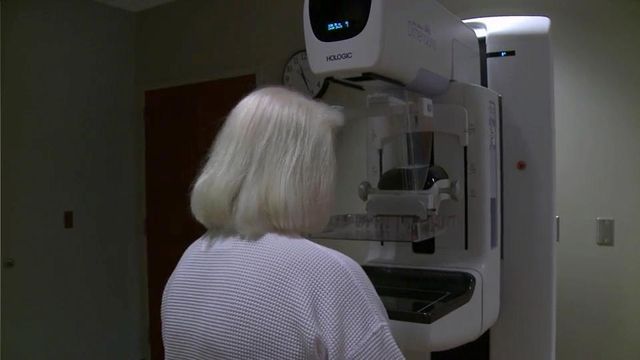Study: Incorrect biopsy results can lead to unnecessary breast cancer treatment
After getting a mammogram, women face the possibility of a needle biopsy to determine if an abnormality is cancerous or not.
Posted — UpdatedAfter getting a mammogram, women face the possibility of a needle biopsy to determine if an abnormality is cancerous or not.
"We're having a hard time in these middle, borderline categories," Dr. Joann Elmore, a researcher at the University of Washington-Seattle, said.
The study focused on pathology results of what researchers call a "gray zone" between normal tissue and cancer, a group of breast biopsy results that doctors call atypia – a term for atypical breast cells.
Another diagnosis called DCIS, or ductal carcinoma in situ, is creating debate. Some doctors say DCIS is not the same as a cancer diagnosis, while others disagree.
"The DCIS is breast cancer and should be treated as breast cancer," Rachel Goble, a Rex breast cancer surgeon, said.
Goble says new screening technologies enable doctors to see tumors in their earliest stages, like DCIS, when they are still inside a milk duct.
"It can turn into an invasive cancer, if left untreated," Goble said. "Then it will just increase in size and then potentially become an invasive cancer which can then require much more extensive treatment."
In the study, pathologists agreed on four of five cases involving DCIS samples. They only agreed on atypia cases about half the time.
Misinterpreting samples occurred more with less experienced pathologists and in samples with denser breast tissue.
"Women with these diagnoses are then getting additional treatment, additional surveillance, being told that they are at very high risk and increased risk for subsequent breast cancer," Elmore said.
Researchers are planning a follow-up study to include second opinions. Goble says the initial study was too limited.
"I think the study raises a lot of anxiety for women who are already going to be anxious about an abnormal image," she said. "They need to see their breast specialist and get good recommendations."
• Credits
Copyright 2024 by Capitol Broadcasting Company. All rights reserved. This material may not be published, broadcast, rewritten or redistributed.





